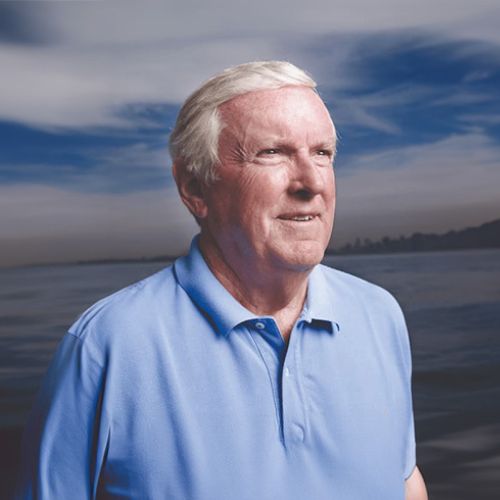Originally published in Carroll Capital, the print publication of the Carroll School of Management at Boston College. Read the June 2025 issue here.
Marc Seidner, MCAS ’88, P ’24, is one of the most illustrious Boston College alumni in the field of finance, and now his name is affixed to the Carroll School of Management’s most illustrious discipline. At the start of the 2024–2025 academic year, the Finance Department was renamed the Seidner Department of Finance, in recognition of an unprecedented gift made by him and his family—the largest in the history of the Carroll School. Seidner is a managing director and the chief investment officer for non-traditional strategies at PIMCO, one of the world’s largest global investment firms. He is also a University Trustee. In this interview, Seidner speaks of his love affair with Boston College, why the finance profession could use Jesuit values, and how he can spot a BC student “a mile away."
Born in Australia and raised in Montreal before moving to New Jersey—how did you find your way to Boston College?
During summers, my family would rent out a place on the Cape, and we always made a stop in Boston. I just developed a love for the city, its history, culture, architecture. I wanted to go to college in Boston, and when it came time, Boston College took a chance on me.
And you were, in today’s parlance, a First-Gen?
Yes—first member of my family to have a college experience. I majored in economics, and professors like Joe Quinn, Catherine Schneider, and Dick Tresch instilled in me a passion for lifelong learning and inspired me to pursue a career in global asset management. The teaching, the formative education, the ideals—all that gave me the tool kit to succeed, personally and professionally. Being able to pay that back and pay it forward is very important to me.
Related
The Seidner Department of Finance named in honor of University Trustee Marc Seidner ’88, P’24, after a historic gift.
Fast forward to 2020: You become a BC parent. Did that alter your perspective in any way?
I’d say it refreshed my perspective. To see a place I love through the eyes of another person I love gave me a new sense of purpose and commitment. This past Christmas, Lexi [Alexis Seidner ’24] gave me a personal book. She went back to a bunch of my BC friends and roommates and asked them for photos of us together on campus in our own time, and she included photos of her and her friends in their time on the Heights. On the last page, she wrote: “BC is truly a special place, one that will always hold some of my favorite memories.” And I realized: I would have written the same thing 37 years ago.
What do you see when you look at BC and its students today?
In many ways, it’s what I saw back then. You know, you could spot a BC kid a mile away. They know the principles, like the notion of men and women for others. They’ve been formed by the whole experience and the core curriculum. It creates these unbelievably poised, eloquent, thoughtful professionals that I think are cast differently than others. I really do, and it’s the same with many of the folks I graduated with.
“ You could spot a BC kid a mile away.... It creates these unbelievably poised, eloquent, thoughtful professionals that I think are cast differently than others. I really do, and it’s the same with many of the folks I graduated with. ”
What has changed?
One thing is the connectivity at Boston College. I’m thinking of the bridge that Andy [Boynton, the Carroll School’s John and Linda Powers Family Dean] and Father Greg [Kalscheur, SJ, Dean of the Morrissey College of Arts and Sciences] have created—the bridge between management and the liberal arts. There was connectivity between the schools when I was there, but the integration and the sheer numbers of students crossing that bridge today is truly remarkable.
What are your hopes for BC and finance education?
I hope that Boston College can turn out more and more people who hold to Jesuit ideals of critical thinking, care for the whole person, and commitment to social justice. It’s easy to think of asset returns as just a number, but every basis point is real money—money to invest in and empower people, to provide safety and security for the future. If those values are instilled in students, along with the necessary technical training, they’ll understand what finance is really about, and the finance industry would be better served for generations.





